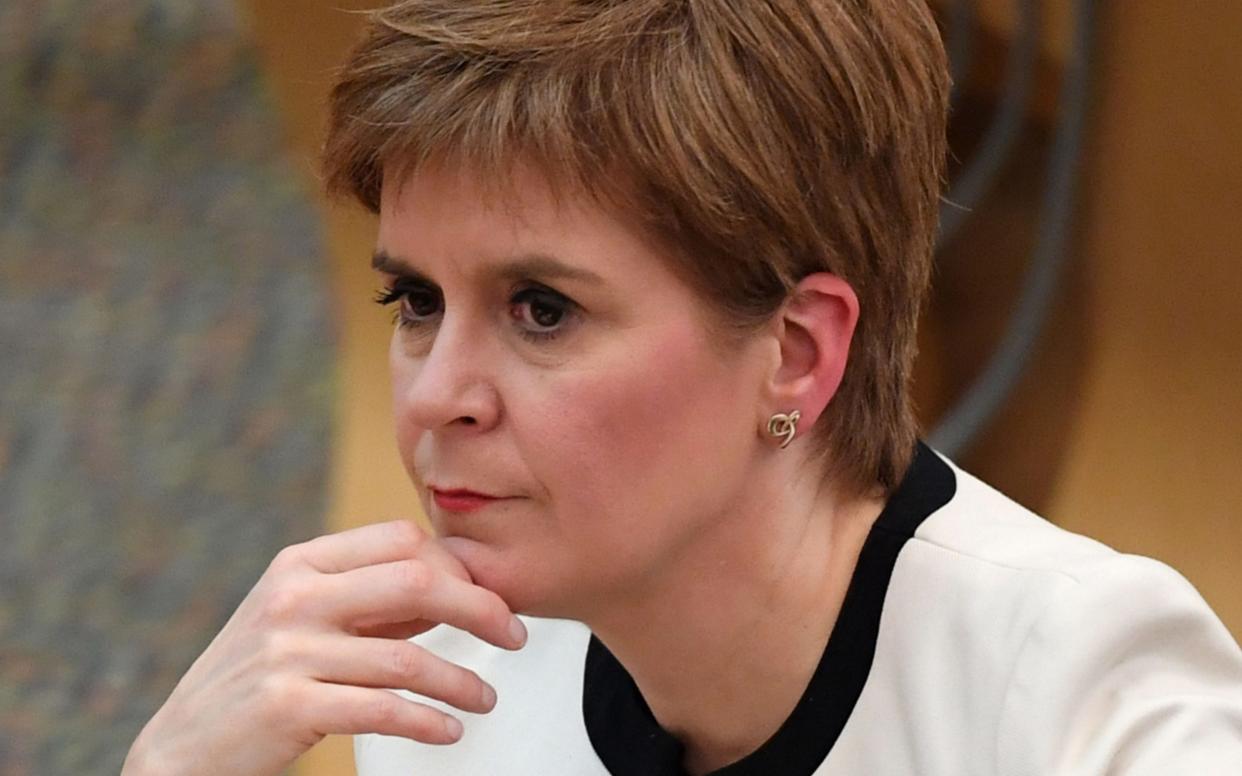Exempt all children from restrictions on social gatherings, Sturgeon urged

Nicola Sturgeon is facing calls to exempt all children from new limits on social gatherings, following claims that her “cruel and harmful” rules will further hamper their development.
From today, meetings of more than six people will be banned, with members of no more than two households permitted to meet up indoors or outdoors at any one time.
While under 12s will not count towards the “rule of six”, the two-household limit will apply to all children, meaning groups of friends will be unable to meet. Those of secondary school age will have to follow the same rules as adults.
The new rules officially come into force as an alarming surge in coronavirus cases in Scotland shows little sign of coming under control.
Today’s case report underlines the need for all of us to be careful and abide by public health rules. In particular, please restrict interactions with other households - no more than 6 from 2 households should meet up. Remember FACTS. And please download https://t.co/zArDmkakdC https://t.co/fuuqI4ZWVK
— Nicola Sturgeon (@NicolaSturgeon) September 13, 2020
The Scottish Government defended the age threshold, saying it offered the “best balance” between setting simple rules for the public to follow while limiting further transmission.
However, campaigners said it made little sense that children of all ages were able to mix freely in schools, where no social distancing is enforced, only for them to then be hit with the tough new rules in their free time.
Further concerns were raised after it emerged that Highland Council had written to all parents urging them to send their children to school in warm coats, as it had ordered windows to be kept open in hundreds of schools, in a move designed to lessen the risk of the virus spreading.
The authority said it was prioritising “infection control over thermal comfort” for children but was condemned for imposing restrictions that sounded like "something from the Victorian era".
Jo Bisset, a spokeswoman for the Us for Them Scotland parents’ campaign group, said that all children should be removed from the new rules on socialising, warning that children were already enduring a “miserable time”.
“Socialisation for children is far more important than it is for adults as it is critical to their development, and any new restrictions must reflect that,” she said.
“Youngsters have only just started building up relationships again after months of lockdown – this ongoing disruption and all the uncertainty that goes with it is cruel and harmful.
“Children have suffered more than anyone as a result of this pandemic, and the government should be doing more to ease that suffering.”
On Friday, Ms Sturgeon said she had asked for advice on whether events such as birthday parties for 10-year-old children could still go ahead.
However, it remains unclear whether any exemption will be allowed or whether it would apply to children aged 12 or older.
The First Minister has admitted that there was “a degree of arbitrariness” to the new rules and that they could seem “inconsistent”.
For example, the Scottish Government confirmed yesterday that amateur sports such as seven-a-side football games between friends can still go ahead, as long as they took place at “an organised venue where a sports pitch or court is open”.
While a seven-a-side game would see members of up to 14 different households coming into close contact, three people from different households could not meet up in a park or garden even if they observed two-metre distancing.
Anyone caught breaking the rules could face on-the-spot fines of £60, reducing to £30 if paid within 30 days.
Ministers have insisted tough new rules are necessary given the recent rise in the number of cases.
Things not looking good in the UK (massive understatement). We all need to act like we could have COVID-19 & minimise close physical contact with those outside our household. Need to avoid awful decisions about COVID v non COVID harm.
— Devi Sridhar (@devisridhar) September 13, 2020
Yesterday, the number of new daily cases hit a four month high for a second day in a row. There were 244 people confirmed as testing positive in the previous 24 hours announced Sunday, following 221 on Saturday.
In the first 13 days of September, 2,201 new cases were confirmed in Scotland, 350 more than across the whole of August. This month’s tally is already more than seven times higher than July’s, when lockdown restrictions were substantially eased.
Crucially, the proportion of people tested who received a positive result, which some experts argue give a more accurate measure of the prevalence of Covid-19 given the increase in testing capacity, rose to 3.7 per cent. Over recent weeks it has not been uncommon for the daily figure to be below one per cent.
Devi Sridhar, chair of Global Public Health at the University of Edinburgh and one of Ms Sturgeon’s key advisers on the pandemic, said it was a “massive understatement” to say the situation was “not looking good” across the UK.
Asked about the situation facing older children as a result of today’s new rules, a Scottish Government spokesman said: “As the First Minister has already set out, any restrictions placed on interactions in the population generally are done so to try to keep the virus at a low enough level to keep schools open, because we know being at school is so important for young people, educationally and socially.
“Our judgement in applying this age threshold is that it provides the best balance between simplicity of message – ensuring physical distancing guidelines apply completely consistently across all primary school children – whilst, critically, restricting overall household transmissions.”

